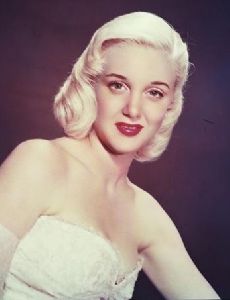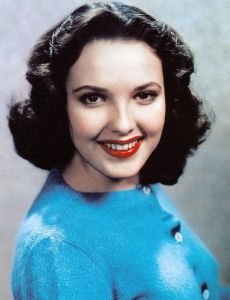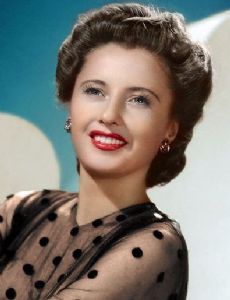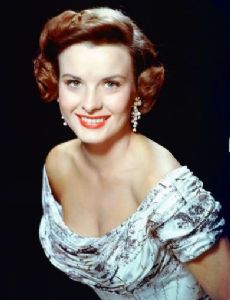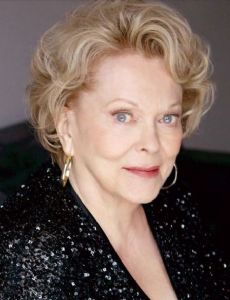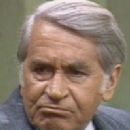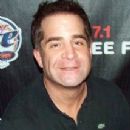Paul Douglas Actor - Born April 11, 1907 in Philadelphia, Pennsylvania, USA
Died September 11, 1959 in Hollywood, California, USA (heart attack)
Birth Name Paul Douglas Fleischer
Height 5' 11" (1.8 m)
Mini Bio (1) A rare breed this guy. Paul Douglas became an unlikely middle-aged cinema star by simply capitalizing on his big, burly, brash and boorish appeal to the nth degree.
The 5'11", 200 lb. actor was a bold, unabashed risk taker. He forsook an extremely successful career as one of the country's top radio/sports announcers to prove his value as an actor. The risk paid off when he found immediate award-winning success on the Broadway comedy stage. Later, despite being a raw new talent in Tinseltown, he had the audacity to turn down the Hollywood powers-that-be to revive his Broadway success to film because he felt they had "reduced" his role too much. Somehow again, the risk paid off. Having neither the looks nor polish befitting a true 1950s movie star, Paul defied the odds once again and became an unlikely overnight smash with his very first film(!) Moreover, he went on to prove he was no one trick pony, cementing his stardom in a number of prime vehicles in both broad comedy and melodrama. And, on top of that, the homely actor managed to have many of the top Hollywood dolls falling for his big lug appeal on screen -- Linda Darnell, Judy Holliday, Celeste Holm, Joan Bennett, Jean Peters, Janet Leigh and Ruth Roman among them. It, in fact, would take an early and sudden death to end all this wildly successful risk-taking.
The bombastic, blue-collar persona Paul exhibited naturally on stage and screen was actually quite a contrast to his own family background. He was born in an upperclass section of Philadelphia to a well-to-do doctor on April 11, 1907, and was christened Paul Douglas Fleischer. An interest in acting sparked while he was a student at West Philadelphia High School. Following graduation, his thoughts turned to college. He went on to take entrance examinations at Yale but never attended the college. Instead Paul made a minor dent as a professional football player with Philly's Frankford Yellow Jackets team.
In 1928 Paul parlayed his passion for athletics into a highly successful sportscasting and commentating career and grew in respect as one of the country's top sports announcers and master of ceremonies. He started at the CBS radio station WCAU in Philly and relocated to the CBS headquarters in New York in 1934 where Douglas co-hosted its popular swing music program "The Saturday Night Swing Club" from 1936 to 1939. But it wasn't enough. The acting bug bit again.
After appearing in a few stock and small theatre plays, he made his Broadway acting debut in November of 1936 as a radio announcer in the comedy satire "Double Dummy" at the John Golden Theatre, but it closed the next month and he returned to radio, eventually landing a cozy niche as an announcer and straight man opposite the likes of Jack Benny (he was Benny's first announcer), Fred Allen and the team of George Burns and Gracie Allen in their respective series. He also found work narrating a host of pre-WWII documentary shorts.
Paul became a highly recognized personality by this radio success ($2,500/week), but brashly decided to give it all up and accept a paltry weekly salary ($250 per week) when writer Garson Kanin offered him the lead role as chauvinistic moneybags Harry Brock in his Broadway play "Born Yesterday" in 1946. Co-starring Judy Holliday and Gary Merrill, the show was a huge comedy smash and Paul the toast of New York in a highly unappealing role. He nabbed both the Theatre World and Clarence Derwent acting prizes for his hot-tempered junkman. The relatively unexperienced actor wisely remained with the show through all 1,024 performances before leaving the show and tempting any type of Hollywood offers.
Like a bull out of a chute, Paul exploded onto the Hollywood scene with his very first film, the classic Joseph L. Mankiewicz drama A Letter to Three Wives (1949). There was pure electricity in his scenes with the equally earthy scene-stealing Linda Darnell. The new film star was immediately tapped to host the 22nd annual Academy Awards in March 1950.
In a surprise move, Paul had the nerve to rebuff a Hollywood offer to recreate his Harry Brock role when Born Yesterday (1950) was turned into a film, starring his Broadway co-star Judy Holliday. After reading the film script, he was put off that his part had been minimalized to the point of favoring his leading lady and to meet the demands of the other male superstar in the picture, William Holden. Columbia used their own manic human dynamo, Broderick Crawford, to take over the film role. As brilliant as he was, but as Douglas himself predicted, it was Holliday who received the lion's share of the attention with an Academy Award-winning tour de force.
Unfazed, Paul instead concentrated on his own star vehicles. His chemistry was so good with Linda Darnell in his first film that the pair was signed to co-star in two more film showcases within a short span of time -- Everybody Does It (1949) and The Guy Who Came Back (1951). Paul also found a way to pay tribute to his former roots in sports starring in two worthy baseball comedy films -- It Happens Every Spring (1949), and Angels in the Outfield (1951), the latter a delightful fantasy in which he plays as an extremely temperamental, obscenity-spouting Pittsburgh Pirates manager.
Douglas was one of those talents who could never give a "bad" performance if he tried, nor did he appear in any truly "bad" films during his high-powered decade on the screen. Saddled with a paunchy frame and homely, potato-nosed, bushy-browed mug that triggered a delightfully humble, self-deprecating humor, he endeared himself easily to the masses. His string of hits continued with the cop thriller Panic in the Streets (1950) in which he partnered with Richard Widmark and Fourteen Hours (1951) in which he and Richard Basehart display tense and brilliant chemistry as, respectively, a police officer trying to talk a suicidal man out of jumping off a building ledge. Elsewhere he gave a sympathetic performance as the naive fisherman husband of adulterous Barbara Stanwyck in Clash by Night (1952); and reteamed with "Born Yesterday" co-star Judy Holliday successfully in a different vehicle, the comedy The Solid Gold Cadillac (1956) in which he again plays a gruff, self-made businessman.
In other media, Paul gave himself the chance to recreate his Harry Brock to video with a Hallmark Hall of Fame episode of Born Yesterday (1956) opposite Mary Martin and Arthur Hill. Douglas also made a return to Broadway with the moderate 1957 hit "A Hole in the Head" co-starring David Burns, Lee Grant and Kay Medford and again directed by his playwright/friend Garson Kanin. In between he continued to find work here and there as a radio announcer (for Ed Wynn)) and was the first host of NBC Radio's "Horn & Hardart Children's Hour". He also provided sterling voice work in documentaries.
Divorced from non-professionals Sussie Welles, Elizabeth Farnesworth and Geraldine Higgins, Paul's final two marriages were to actresses with each one producing a child. In early 1942 he married fourth wife/actress Virginia Field. Separated in December 1945, they divorced the following year. He later met actress Jan Sterling and married her on June 22, 1950. This marriage proved happy and lasted until his death.
Paul's final movie was another in a career of comedy highlights as the fun-loving bucolic in The Mating Game (1959), co-starring with Debbie Reynolds and Tony Randall. In April 1959, Douglas enjoyed a special guest star turn on the highly-popular The Lucy-Desi Comedy Hour (1957), as the dingy redhead's TV morning show boss, in a Connecticut episode entitled The Lucy-Desi Comedy Hour: Lucy Wants a Career (1959).
Douglas had just completed filming The Twilight Zone (1959) episode, The Twilight Zone: The Mighty Casey (1960), in a baseball manager role, specifically written for him by Rod Serling, based on Paul's memorable Angels in the Outfield (1951) role, when tragedy happened. On the morning of November 11, 1959, the 52-year-old Douglas collapsed and died of a massive heart attack as he got out of bed. With Serling unable to reshoot parts in which Douglas looked especially drawn and haggard, the entire episode had to be refilmed (at Serling's expense) with Jack Warden taking over the lead part. In addition, Billy Wilder had recently cast Paul as Jack Lemmon's philandering boss Sheldrake in the hit film, The Apartment (1960). The film, which was about set to film, recast Fred MacMurray in the role.
And thus, instead of Paul starting a brand new decade of acting work on a high note ("The Apartment" went on to win the 1960 Academy Award for Best Picture), Hollywood instead had to mourn the loss of a wonderfully gruff and robust talent way before its time.
- IMDb Mini Biography By: Gary Brumburgh / [email protected]
Spouse (5)
editJan Sterling (12 May 1950 - 11 September 1959) (his death) (1 child) Adams Douglas (20 October 1955)
Virginia Field (11 April 1942 - 23 September 1946) (divorced) (1 child)
Geraldine Higgins (2 May 1940 - 5 August 1941) (divorced)
Elizabeth Farnsworth(1931 - ?) (divorced)
Sussie Welles (? - ?) (divorced)
Trivia (11)
editYou can find people similar to Paul Douglas by visiting our lists Donaldson Award winners and Male actors from Greater Los Angeles.
| Full name at birth | Paul Douglas Fleischer
|
||
| Claim to fame | Angels in the Outfield
|
||
| Date of birth | 11 April 1907
|
||
| Place of birth | Philadelphia, Pennsylvania, USA
|
||
| Date of death | 11 September 1959
|
||
| Age | 52 (age at death)
|
||
| Place of death | Hollywood, California, USA
|
||
| Cause of death | Heart Attack
|
||
| Resting place | St. Paul's Churchyard, Covent Garden, London Borough of Camden, Greater London, England
|
||
| Occupation | Actor
|
||
| Occupation category | |||
| Nationality |
PERSONAL DETAILS
| Height | 6' (183 cm)
|
||
| Weight | 200 lbs (91 kg)
|
||
| Build | |||
| Hair color | |||
| Eye color | |||
| Gender | |||
| Ethnicity | |||
| Sexuality | |||
| Religion |
|
||
| Zodiac sign | |||
| Distinctive feature |
|
||
| Pets |
|
ADDITIONAL DETAILS
| High school |
|
||
| University |
|
||
| Talent agency |
|
||
| Political affiliation |
|
||
| Political party |
|
More...
- Quotes (10) keyboard_arrow_right
- Pictorials (1) keyboard_arrow_right
- Magazines (2) keyboard_arrow_right
- Photos (71) keyboard_arrow_right
- Lists (17) keyboard_arrow_right
- Filmography (101) keyboard_arrow_right
- Awards (1) keyboard_arrow_right
- Forum (3) keyboard_arrow_right
- Fans (7) keyboard_arrow_right
This page is the FamousFix profile for Paul Douglas. Content on this page is contributed by editors who belong to our editorial community. We welcome your contributions... so please create an account if you would like to collaborate with other editor's in helping to shape this website.
On the Paul Douglas page you will be able to add and update factual information, post media and connect this topic to other topics on the website. This website does skew towards famous actors, musicians, models and sports stars, however we would like to expand that to include many other interesting topics.

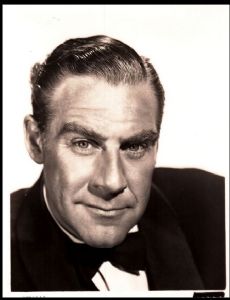









![Forever Female - Movie Life Magazine Pictorial [United States] (November 1953)](http://img3.bdbphotos.com/images/130x130/l/t/ltg7lyxcxst0slx7.jpg?skj2io4l)
